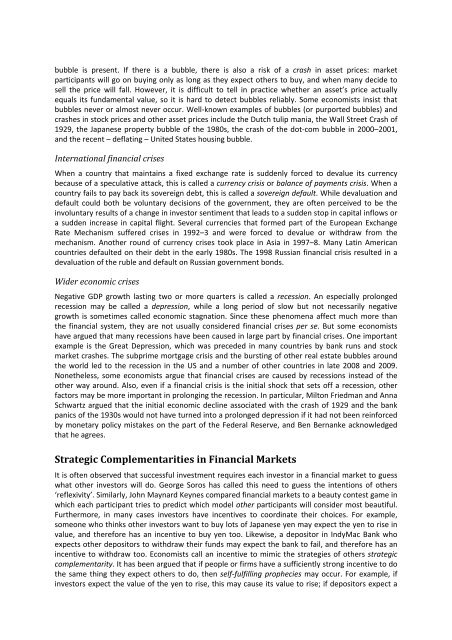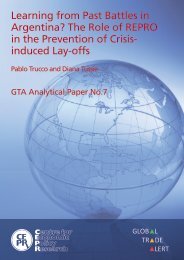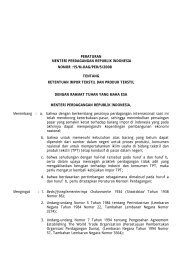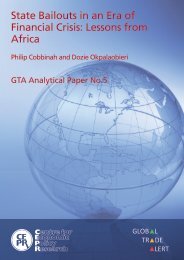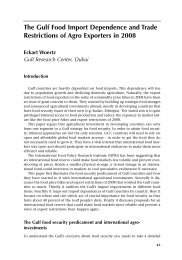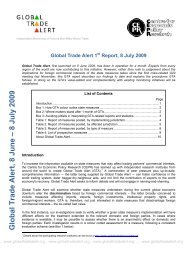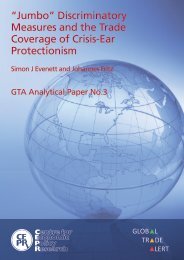Create successful ePaper yourself
Turn your PDF publications into a flip-book with our unique Google optimized e-Paper software.
ubble is present. If there is a bubble, there is also a risk of a crash in asset prices: marketparticipants will go on buying only as long as they expect others to buy, and when many decide tosell the price will fall. However, it is difficult to tell in practice whether an asset’s price actuallyequals its fundamental value, so it is hard to detect bubbles reliably. Some economists insist thatbubbles never or almost never occur. Well‐known examples of bubbles (or purported bubbles) andcrashes in stock prices and other asset prices include the Dutch tulip mania, the Wall Street Crash of1929, the Japanese property bubble of the 1980s, the crash of the dot‐com bubble in 2000–2001,and the recent – deflating – United States housing bubble.International financial crisesWhen a country that maintains a fixed exchange rate is suddenly forced to devalue its currencybecause of a speculative attack, this is called a currency crisis or balance of payments crisis. When acountry fails to pay back its sovereign debt, this is called a sovereign default. While devaluation anddefault could both be voluntary decisions of the government, they are often perceived to be theinvoluntary results of a change in investor sentiment that leads to a sudden stop in capital inflows ora sudden increase in capital flight. Several currencies that formed part of the European ExchangeRate Mechanism suffered crises in 1992–3 and were forced to devalue or withdraw from themechanism. Another round of currency crises took place in Asia in 1997–8. Many Latin Americancountries defaulted on their debt in the early 1980s. The 1998 Russian financial crisis resulted in adevaluation of the ruble and default on Russian government bonds.Wider economic crisesNegative GDP growth lasting two or more quarters is called a recession. An especially prolongedrecession may be called a depression, while a long period of slow but not necessarily negativegrowth is sometimes called economic stagnation. Since these phenomena affect much more thanthe financial system, they are not usually considered financial crises per se. But some economistshave argued that many recessions have been caused in large part by financial crises. One importantexample is the Great Depression, which was preceded in many countries by bank runs and stockmarket crashes. The subprime mortgage crisis and the bursting of other real estate bubbles aroundthe world led to the recession in the US and a number of other countries in late 2008 and 2009.Nonetheless, some economists argue that financial crises are caused by recessions instead of theother way around. Also, even if a financial crisis is the initial shock that sets off a recession, otherfactors may be more important in prolonging the recession. In particular, Milton Friedman and AnnaSchwartz argued that the initial economic decline associated with the crash of 1929 and the bankpanics of the 1930s would not have turned into a prolonged depression if it had not been reinforcedby monetary policy mistakes on the part of the Federal Reserve, and Ben Bernanke acknowledgedthat he agrees.Strategic Complementarities in Financial MarketsIt is often observed that successful investment requires each investor in a financial market to guesswhat other investors will do. George Soros has called this need to guess the intentions of others‘reflexivity’. Similarly, John Maynard Keynes compared financial markets to a beauty contest game inwhich each participant tries to predict which model other participants will consider most beautiful.Furthermore, in many cases investors have incentives to coordinate their choices. For example,someone who thinks other investors want to buy lots of Japanese yen may expect the yen to rise invalue, and therefore has an incentive to buy yen too. Likewise, a depositor in IndyMac Bank whoexpects other depositors to withdraw their funds may expect the bank to fail, and therefore has anincentive to withdraw too. Economists call an incentive to mimic the strategies of others strategiccomplementarity. It has been argued that if people or firms have a sufficiently strong incentive to dothe same thing they expect others to do, then self‐fulfilling prophecies may occur. For example, ifinvestors expect the value of the yen to rise, this may cause its value to rise; if depositors expect a


